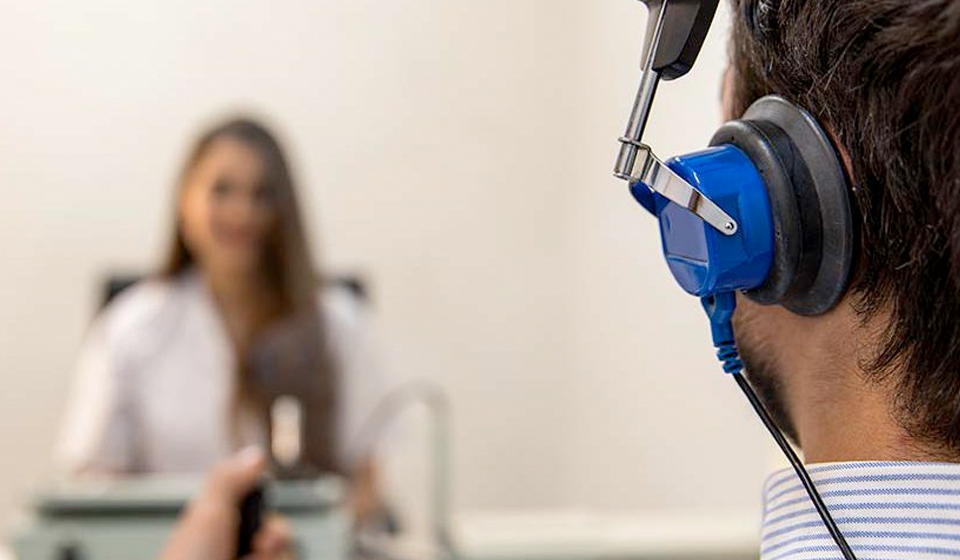Do you have trouble understanding conversations in noisy places? Do you often ask people to repeat themselves? Have family or friends told you to get your hearing checked?
If you answered “yes” to any of these questions, it is time to get a hearing assessment. You may be missing important sounds and not even realize it.
Did you know that beginning at age 60, you should get your hearing checked annually? Spreading that message is one of the Campaign for Better Hearing’s main goals. Our motto is “Test Your Ears at 60 Years!”
Why is hearing loss a concern for Baby Boomers?
There is a strong relationship between age and reported hearing loss, which, according to the Hearing Health Foundation, affects nearly half of people age 75 and older, and approximately one-third of people ages 65 to 74.
Hearing loss due to aging is called presbycusis and causes changes in the inner ear as you get older—resulting in a slow, but steady hearing loss over time. This typically happens in both ears and may affect your ability to understand speech. Although you can’t prevent the aging process, you can take steps to protect your ears from hearing loss.
When is it time to get a hearing assessment?*
Sometimes family and friends may suspect you have hearing loss before you do. If they mention you have trouble hearing, take them seriously and get a hearing assessment. Many factors can determine how well you hear in various situations—the pitch of a speaker’s voice, the presence of background noise and the acoustics of a room. Hearing better in some situations more than others may prevent you from recognizing the need to get your hearing checked.
Untreated hearing loss has consequences
Like any medical condition, the earlier you seek treatment the better your outcome will be, and the sooner you may begin improving your quality of life. Untreated hearing loss may have serious emotional and social effects on your quality of life. According to a study by The National Council on the Aging, adults age 50 and older with untreated hearing loss were more likely to report depression, anxiety and paranoia and were less likely to participate in organized social activities, compared to those who wear hearing aids.
Baby Boomers can start with the Campaign for Better Hearing
Maybe you aren’t sure where to get a hearing assessment,* or you are delaying the getting your hearing assessed* because you are nervous. The good news for Baby Boomers is that the Campaign for Better Hearing partners with 450 screening centers across the U.S. and requesting your appointment takes less than 60 seconds. A hearing assessment is non-invasive and painless and takes about 30 minutes (appointment time is 60 minutes).
Hearing Assessment: 3 Painless Steps
-
1. An Otoscopy is an exam of the three parts of the ear—external auditory canal to the eardrum. The hearing specialist will inspect the ear for any signs of disease, infection or wax build up. During the exam, the outer part of your ear will be gently moved upwards and backwards to straighten the auditory canal, making it easier to see the eardrum.
2. Establishing a baseline determines your current hearing levels. That way, hearing assessments performed in the future can be compared against the baseline measure to determine if there has been a decrease in hearing acuity. An audiologist or hearing specialist will obtain an audiogram, which will show how well you hear in terms of frequency or pitch and intensity, the volume (e.g. loud or soft) of a sound.
3. A speech understanding assessment indicates how well you can understand speech in real-world settings, such as restaurants and at a distance. Because everyone speaks with a different accent and intonation, it is helpful for a hearing specialist to assess your hearing with a voice you recognize. If possible, it’s a good idea to bring a family member or friend with you to the appointment. During the assessment, your family member or friend will say a series of words, often in the presence of noise, which you’ll repeat. Then, the familiar person will ask you questions from 12 to 15 feet away to assess your functional hearing at a distance.
Attention Baby Boomers: Find a Location Near You
If you have trouble hearing even once in a while, it could indicate hearing loss. Baby Boomers can schedule their hearing assessment today by calling 866-837-8286 (866-TEST-AT-60), or by visiting campaignforbetterhearing.us.

